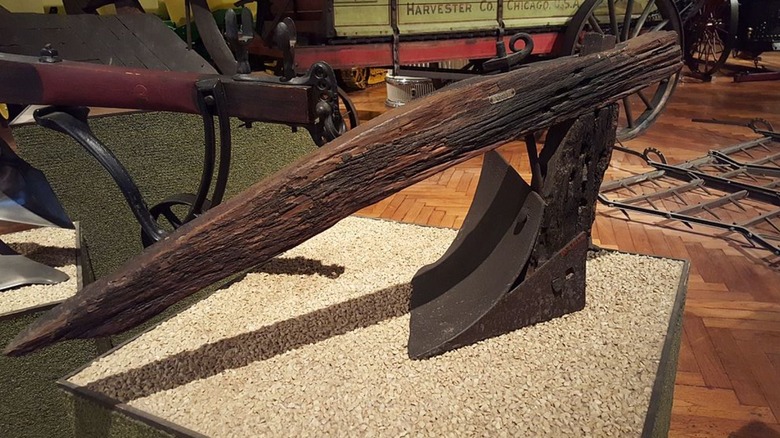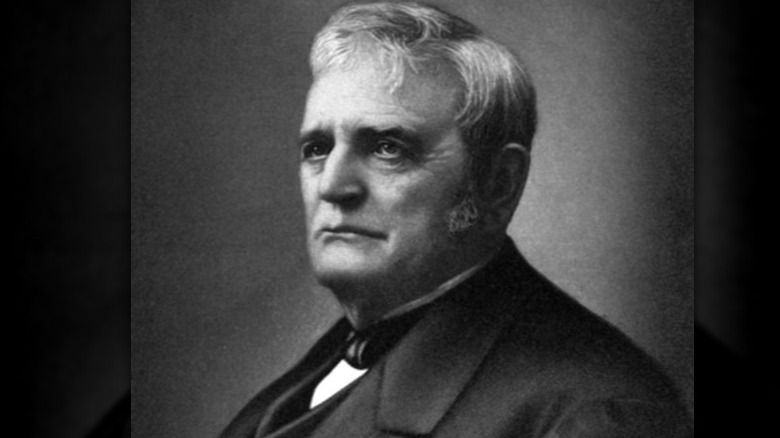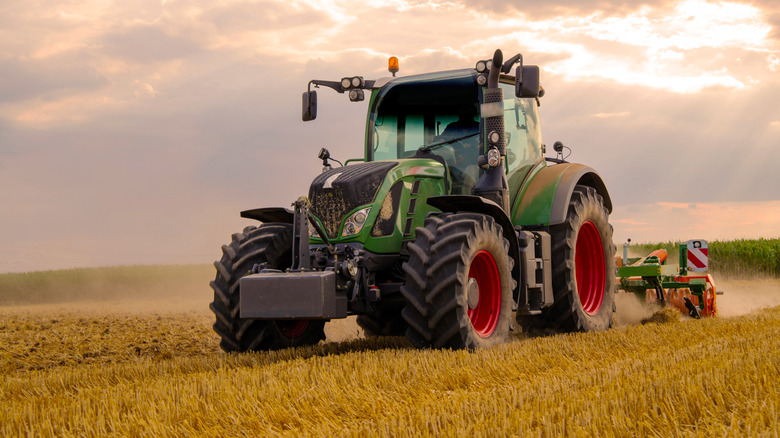John Deere's Rich Legacy Was All Thanks To One Simple Plow
John Deere, with its iconic green and yellow products, manufactures some of the most sought-after agricultural machinery in the industry. As Reuters explains, the sales of Deere & Co are on the rise, with demand increasing every quarter, as of 2022. Deere's share value had increased by 23.7% from 2021 and is expected to have an increase in revenue as well. This profit and production come on the aftermath of the COVID-19 pandemic, which saw a global shortage in processing material and parts, leading to stalled production and limited sales. As economies begin to open up again, Deere seems poised to take advantage of it.
Outside of the company's present financial disposition, there's also the story of how John Deere came to exist and dominate agricultural markets. It all started with a real man named John Deere, who lived in the 19th century. According to History Daily, he would go on to be one of the most influential agricultural pioneers of all time.
Who was John Deere?
John Deere was born on February 7, 1804, in Rutland Vermont. As Britannica says, Deere got his start as a blacksmith apprentice, eventually finding his way to agriculture, where he made observations of frequently occurring problems with equipment, like inefficient iron plowing tools. This led him to developing a significantly more efficient steel plow, one of the earliest designed for Midwest soil. Deere eventually married his technical ingenuity and business acumen together into a company. This company at first was started to sell Deere's newly invented steel plows, but soon developed into something much bigger.
As Biography says, Deere's extensive experience in repairing agriculture equipment formed the backbone of his new industrious venture. Deere eventually expanded his business in Moline, Illinois, which allowed for easy access to rivers and riverboats for waterpower and transportation. Deere's company was one of the largest manufacturers for agriculture equipment, producing over 1,000 plows annually by 1846. Eleven years later, that number was 10,000 plows annually. Deere & Company was named and incorporated in 1868.
John Deere's steel plow invention was a game changer
It is quite hard to overstate the impact that John Deere's inventions and company have had on the agriculture industry. As History Daily says, plenty of farmers in Deere's own time had complained about how difficult it was to plow the relatively sticky soil of the Midwest prairies. Prairie farming is hard work, which includes incredibly sturdy prairie grass and roots that didn't break easily with the standard cast iron farming tools of the 19th century. The farming implements available at the time just did not hold up against this rough soil. Deere came up with a wildly innovative new steel plow to help dominate the prairie. The steel blade slid through the prairie soil as it turned it, a distinct advantage over the cast iron plows, to which the soil would stick, forcing the farmer to stop and clean the blade every few minutes.
But, as Smithsonian Magazine says, this tool came with its own eventual downside. Despite the numerous advantages and dramatic improvement to agriculture the invention gave, some argue that it also increased pollution and erosion substantially. Easier plowing meant more land could be cultivated, though not always wisely or with foresight. Many species have gone extinct, and the Dust Bowl happened in part because of rampant over-cultivation. However, Peter Liebhold, a National Museum of American History curator, says (per Smithsonian) that Deere was only one part of the agriculture industry, and that many other people contributed to both agriculture engineering and the ecological crisis. Either way, it seems that Deere's legacy is here to stay, for better and for worse.


